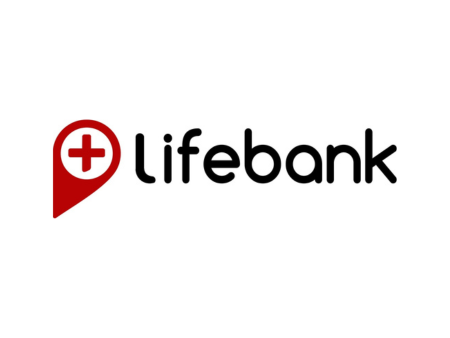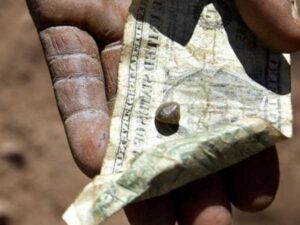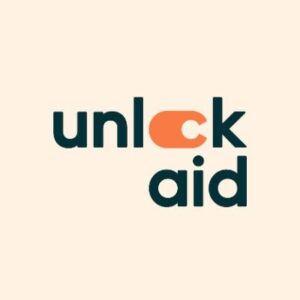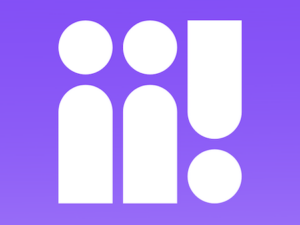LifeBank Technology uses technology and innovation to provide 24/7 access to critical medical supplies to hospitals, like blood, oxygen, and medical equipment.
Temie Tubosun of LifeBank Technology spoke with Ambika Samarthya-Howard on December 22, 2023. Click here to read the full conversation with insights highlighted.
Ambika Samarthya-Howard: I’d love for you to start by introducing yourself and your work, and a little bit about your organization and your approach.
Temie Tubosun: My name is Temie. I am the founder and CEO of LifeBank. We operate in 14 cities, we’re eight years old. We have about 140 employees doing this work to improve access to healthcare.
Like most of these stories, I have a personal connection to the problem we’re solving. I have had a passion for maternal health since I was 23, when I started my career. Essentially it was an intellectual pursuit. I worked at WHO in Switzerland. I worked at UNDP. So I’m a healthcare person and I have always been specifically focused on maternal healthcare technology, et cetera, et cetera.
But nine years ago I had [my] boy and it was a very difficult birth. I’m Nigerian-American, so I was born in Nigeria by Nigerian parents, but we moved to the US when I was a teenager. I was very lucky to be in the US, to have access to great healthcare. It was touch and go at some point, but I was able to be resuscitated. I was fine at the end of the day, and we survived. So after his birth, I had this more emotional connection to the problem. Something that I used to do as a job now became something very personal. I knew then that I had to sort of recommit my life to doing this work more directly.
The first problem that really animated me was the matter of postpartum hemorrhage. Essentially a mom gives birth, starts bleeding. The interesting thing is it happens to quite a lot of women. It is the number one killer of women in the developing world in childbirth. It is very quick: death can happen between 20 minutes and four hours. The healthcare team often [don’t have] enough time to find solutions to the problem. Unlike preeclampsia and malaria where you can really try to save the mother’s life.
Also it’s very easy to solve, right? That’s the funny thing. All you need to make sure is to either have access to certain medicine that you get into the woman and our body learns to stop the bleeding, or you transfuse blood into her and even if she’s bleeding very fast, you keep transfusing until the clotting happens.
Essentially I was like, okay, women are dying. There’s blood available in the market. And so you had the supply and you had demand, but somehow they were not meeting each other at the right point. I decided that that was the problem that I was going to solve. So I launched LifeBank. Essentially we are a marketplace for care teams to find the right supplies that they need to save their patient’s life. We deliver it to them in the right condition and very quickly, 24 hours a day, seven days a week. There’s always someone at LifeBank working. Because we do the delivery ourselves, our riders also are always available, delivering in the middle of the night on Christmas day or New Year’s Day.
Although we started with blood because that was what I was passionate about, we’ve since expanded to medical oxygen, to medical consumables, PPEs, medical equipment, and we’re even now into the process of medical pharma as well. So basically a one-stop shop for care teams to find access to safe, high quality, affordable, accessible medical supplies, across 14 cities in three countries: Nigeria, Kenya, and Ethiopia. We are pan-Nigerian, so we operate as far as Yobe State, Kano, Jigawa, even here in the east, Enugu, Port Harcourt, and of course in the southwest. In Kenya, we’re still small, we’re just in the Nairobi metropolitan area. And in Ethiopia, we’re in Addis Ababa.
Ambika Samarthya-Howard: How does the service actually work? You explain the supply-demand so simply and directly, but it seems like it is the hardest thing for social change folks to do. Maybe you can take me through an example?
Temie Tubosun: The first thing is we sign up our hospitals, we have a sales force who go into these hospitals and tell them about the product that we have. Then the next thing is inventory. We have about 200 suppliers – blood banks who we work with to improve their safety standard and their system. We onboard them and they become suppliers. We have oxygen manufacturers, typically small ‘mom and pop’ manufacturers, somebody whose life’s work is this factory and that’s all they’ve done all their life. And we partner with them to get their supply into the hands of the care team that desperately needs that oxygen. We have distributors of PPEs on our platform, we have medical equipment manufacturers and distributors, and we even have some pharma companies where we have agreements to help get their supplies into the hands of the care team.
Then we help hospitals place orders. So this is the big part. This is all managed by technology. This thing is called One Vendor Application, and it’s an app that all our vendors have and they use it to list their supplies. So basically a blood bank comes to the bank in the morning, they check the supplies that they have available, they update their inventory. Say, “I have 10 bags of O negative to distribute.” An oxygen manufacturer will say, “Okay, we made 200 cylinders yesterday and that’s available for distribution and this is the purity level of this cylinder, of this oxygen that we manufactured yesterday.” They give us the supplies that they have available, and this happens 24 hours a day. So this is that inventory platform. So at any given time, we have the hospital placing the order.
There are three ways that they can place that order. The first one is of course a digital marketplace. So if you’re a hospital who has access to the internet or you have a mobile application or you have a desktop computer, you can log in and place your order. [Referring to on-screen visuals] So you have blood, you have oxygen – the red is blood, the blue is oxygen, the green is consumables, and then the last one is medical equipment. And you can place this order with just about seven taps. So you’re not typing, you’re just tapping and selecting. The next part is voice. If you don’t have access to the internet, but you have access to calling, you can call into our call center. And that’s also open 24 hours a day. And then the last bit is USSD [Unstructured Supplementary Service Data], essentially dialing in, so if you don’t have access to the internet, if you have a feature phone, those sort of ‘dumb phones’, you can place an order using USSD.
Finally, we have an internal system, a smart system that connects the inventory with the request and matches it. So basically one hospital orders this, then looks through the inventory and says, “Okay, let’s go pick up at this particular supplier.” And then we deliver. Our delivery people are full-time employees of the business, and they deliver 24 hours a day, seven days a week. Then we help hospitals pay and that closes the order. This is essentially how it works, round the clock.
Ambika Samarthya-Howard: This seems like a very straightforward, well-thought-out, very applicable approach to every city and every hospital. What’s preventing you from scaling even further? How did you roll out in these cities and what’s the challenges now in terms of scale?
Temie Tubosun: Scaling is expensive, as you can imagine. We’ve scaled fully in Nigeria. We can essentially reach mostly everybody in Nigeria, because we’re in all the geopolitical zones. We have multiple operations in each zone, so we feel very pan-Nigerian. But what’s keeping us from expanding to all these countries, it’s a combination of three things, having the right resources, also the complexity – the scale complexity in our business, we’ve had to do a lot of paring down.
For example, call centers. My dream is to make sure that we can close down the call center, so folks are using just the digital system, and USSD if you don’t have access to the internet. Because a call center, whenever there’s a human involved, there’s just so much complexity. Are they doing the right thing? There’s a lot of QA you need to do, et cetera, et cetera. So those are the kind of complexities still in the system that we’re trying to pull out, and figure out a way to operate that is easy to scale and scale fast.
And then the third one is regulation and government relations. Because of the sensitivity of the work that we do, because it’s blood, it’s medical oxygen, and folks are really sensitive about those two things, we’ve had some challenges in the markets where it’s not originally our market. So Nigeria, we don’t have any challenges, for the most part, with regulations and governments. But when we are expanding out to Kenya and Ethiopia, it takes a lot of time to explain what we do. And the biggest issue is because we make money. Because we want to be sustainable, we charge a fee, then it becomes difficult for them to understand. Typically, people are used to NGOs solving this problem.
Our business model is something called cross-subsidization, where smaller hospitals serving the very poor pay much less for the same service than larger ones. But even still, the fact that you’re charging people in these kinds of markets that are historically driven by NGOs and global health, and aid generally, find it difficult to do with startups and businesses like ours.
Ambika Samarthya-Howard: And so in your business model, how much do you charge? What is the payment and who pays?
Temie Tubosun: We are B2B [business to business], we don’t serve the patient directly. We serve the hospital, the care team, so they are the ones who pay us. And it depends. We charge a surcharge on top of the actual product. So a blood bank will say, “Okay, I’m distributing this bag of blood for 10,000,”. It means that they’ve paid for the blood bags, they’ve made sure they tested the donors, they’ve done screening, so they make it available for 10,000. And that’s part of the inventory here. And then we charge a small surcharge, much smaller for last-mile hospitals and much larger for larger institutions.
Ambika Samarthya-Howard: I’m curious how you define success. What are your current success or impact metrics?
Temie Tubosun: For us, impact is at the heart of what we do. Personally, this is Temie and not the institution talking – for me, I will feel successful if every African across the continent has access to the right supply, high quality and affordable, across the continent. That would be LifeBank is successful. I will feel like we’ve arrived. And I’ll probably retire and go sit on a beach somewhere, to be honest!
But right now we’re still making that progress. We’re in three countries. I want to expand to all African countries, make sure that at least, we are available in all the places where we are needed. Typically, southern Africa does not seem to have as much issue with these supplies so we’re not really planning on moving there. And then there’s some part of northern Africa that we would not try to move in, although Egypt is interesting and we’re looking into that. But for us it’s to be in every single area where we are needed.
Ambika Samarthya-Howard: And so you would say your evidence of progress is scaling?
Temie Tubosun: It’s scaling. So top line, is this population served? Because it means that that population has access. Making sure that all the 2 billion people across Africa are on the list as population served would be a big impact goal for us. And then, after that population served, we cascaded down to these three [measures]: how many women we actually helped directly, how many improved patient outcomes we got, and how did our business model ensure that people without that high income also get served?
Ambika Samarthya-Howard: What’s something that hasn’t worked as you’ve been doing this work?
Temie Tubosun: Oh, so many. Where do I start? The biggest one, because I spent so long, so much money, so much time, is drone delivery. Typically our delivery system is called multimodal – we use all sorts of systems, bikes, motorbikes, boats in riverine communities, trucks for larger supplies like oxygen because they’re moved in these giant cylinders, helicopters sometimes, when it’s an emergency and the person can pay. But the one that we haven’t been able to pull off is drones.
Since 2017 I’ve been working constantly on this drone work and we either get hit by regulations or because there’s a lot of international organizations in that market, dominating it. We just wanted to show that even us, indigenous to this community, can do it as well. But that hasn’t worked. And towards the end of this year, in fact, I was drafting a memo around shutting it down and saying, “Okay, we’ll find another way. Right now, drones are not appropriate for our markets. We don’t have the right resources to really drive this.” So we’re going to shift towards maybe e-bikes, helping the planet by switching from bikes that use fossil fuel, to bikes that use renewable energy.
Ambika Samarthya-Howard: I see you as a systems change orchestrator. Do you see yourself as a systems change orchestrator?
Temie Tubosun: Nudging towards change… I’m a little bit worried about making really firm claims, but yes, I think we are changing the way people do business, the way care teams operate. We are delivering better quality supplies at the same price that they used to get it. We have this project that has been successful called Blood Safety Fund, where we work with blood banks to improve the safety standard. So maybe you don’t have the right blood fridge or you’ve not done this or you’ve not done that. And we basically give them zero-interest loans, and we collect that loan by collecting blood from them and getting that to the hospitals. But by giving them that fund upfront, they can invest in their business and improve their services.
So for me, I think yes, we are changing the system, but we’re not changing the system from the point of view of say, governments, right? We’re changing the system in the actual operations, the blood banks, the care teams, the hospitals, the primary health centers. But instead of saying, “Oh, the federal Ministry of Health must change,” we’re not doing that. We’re focused on the people actually doing the work and working with them, building innovation on their behalf, that will allow them to improve the services they provide to their customers.
Ambika Samarthya-Howard: And so piggybacking off of that, what do you need from other actors in the systems in order to get your work done?
Temie Tubosun: I think advocacy. I mentioned governments, it is the absolute weakest point at LifeBank. Dealing with governments, doing advocacy work, work that is not operational. And some people are so fantastic at it. So if we can find a way to work with those people who are good at it, to just sit down with this government and speak to what drives them. It’s not my strong suit. I’m an operator at heart and professionally. So that would be what we need, advocacy on our behalf to governments by people who understand the work that we do and how much impact we can drive.
I would say advocacy first, because a lot of times folks may get in our way and we need to be allowed to do the work that we are doing. The next will be resources so that we can scale. And the final thing around that is for the global health community, other actors to understand that a business model does not mean that impact is in doubt. We face a lot of this. Folks are used to essentially funding third sector folks who are not revenue-generating or maybe not profit-making. And the fact that we are profit-making, we’re a startup, we operate, we raise capital from equity investors, et cetera. Folks with patient capital find it a little bit difficult to fund us because of that profit-making, there’s a distrust. Maybe not as explicit, but implicit distrust of profit-generating institutions. And I think that doesn’t serve anyone. For us personally, we think that that profit motive drives us to innovate and innovate constantly to drive excellence in everything we do. And we think it’s made our impact even stronger and more durable. We think that folks with that implicit bias should recognize it and sit with it and think about it and find a way to resolve that for themselves because I think it’s very, very rampant in global health.
Ambika Samarthya-Howard: Besides scaling, are there any other ways you see yourself going in the next five years?
Temie Tubosun: AI is a big part and there are two ways we are thinking about it. Apart from that scaling, the actual core operations of the business, infusing AI into it. Another big part is making sure that we are predicting demand. We are not scheduling for the most part, so a majority of our delivery of our operation is actually on demand – very similar to, say you are ordering pizza, they’re not going to wait two hours to get all the pizzas and then go deliver at once. So that complicates our delivery.
So one of the things we want to do with AI is better predict demand for the care centers. It’s better for us, it saves us money and allows us to scale faster. At the same time, it also actually increases the quality of care because it means that the care team is prepared even when the patient comes in and they’re not having to scramble once the patient is coding. So that’s going to be how we use AI, apart from making our operations more efficient, is also predicting the demand and getting ahead of that demand. So we can shift from on-demand to scheduled.
Ambika Samarthya-Howard: What is some advice you’d give to others? What’s some insights or lessons you’ve learned from your work that you would like to share?
Temie Tubosun: I like to call myself a reluctant entrepreneur. In the beginning of my career, I wasn’t somebody who was like, “Ooh, I need to start a business.” I actually wanted to be a diplomat. I studied Policy and [earned] a Master’s Degree at Middlebury Institute of International Studies in California. I wanted to be a global diplomat. Working out of the UN, that was what I was training to be. And I was studying in French. I got my Masters in Public Policy, in the French language, so that I had two languages so that I can go into the UN. That’s how fastidious I was around being a UN diplomat.
But for me, I saw the problem. I went back to Nigeria after growing up in the US and had this connection with this problem of maternal death, and changed my entire life towards healthcare. I’ve learned a lot about business. I’ve learned that if we’re going to solve problems – global health, global hunger, educating people, climate change, it is in the power of innovation. I call myself a happy warrior on behalf of our patients. I think I want to be happy. I don’t want to be bogged down and bothered so deeply about the problem. I want to be inspired and optimistic about our chance of solving the problem. There are times where I worry whether we’re ever going to get there, we’re in year eight? We’re just in three countries and there’s 54 of them that I want to get into. But what have I learned? To be optimistic, to innovate, and to move the world forward and to solve problems and to focus on that and not other things.
Ambika Samarthya-Howard: For anybody working in healthcare delivery and trying to do what you’re doing in other parts of the world, the USA or South America or other places, do you have any advice for them?
Temie Tubosun: I think my advice would be to focus on the patient. Because it’s going to get hard and you’re going to be discouraged. In the USA, Medicare refuses to pay, or something happens. You have to keep the patient at the heart of your “why”.
I used to have on my wall in my office in Lagos pictures of patients. Before we started our oxygen business, there was a consultant doctor in a hospital in Kogi State. She had an asthma attack. This is one of the most senior [doctors] in the hospital in Nigeria, a consultant. And she died because she had an asthma attack and the hospital where she worked didn’t have access to oxygen. There was something that went viral on social media. I printed it out and framed her picture and left it on my wall. Whenever things go hard, whenever I get discouraged and dejected, I just look at her [picture] and all the other ones on my wall to remind myself of the reason why.
So for me, the advice is knowing that being in the trenches is going to be difficult. There are so many other things you could be doing, a much easier, better quality of life. For example, I have to start my day at 4 a.m. so that I can have time with the Nigerian team, the Kenyan team and the Ethiopian team. It gets tough. What will keep you going when it gets tough is the why. And the why should always be the patients. Keep those stories close.
Ambika Samarthya-Howard: Thank you so much.
Click here to read the full conversation with insights highlighted.
Ambika Samarthya-Howard (she/her) is the Solution Journalism Network’s Chief Innovation Officer: She leads on innovation and technology, leverages communication platforms for the network strategy and creates cool content. She has an MFA from Columbia’s Film School and has been creating, teaching and writing at the intersection of storytelling and social good for two decades. She has produced content for Current TV, UNICEF, Havas, Praekelt.org, UNICEF, UNFPA, Save the Children, FCDO, Global Integrity and Prism.
* This interview has been edited and condensed.
Learn about other organizations that use technology to better serve healthcare.







